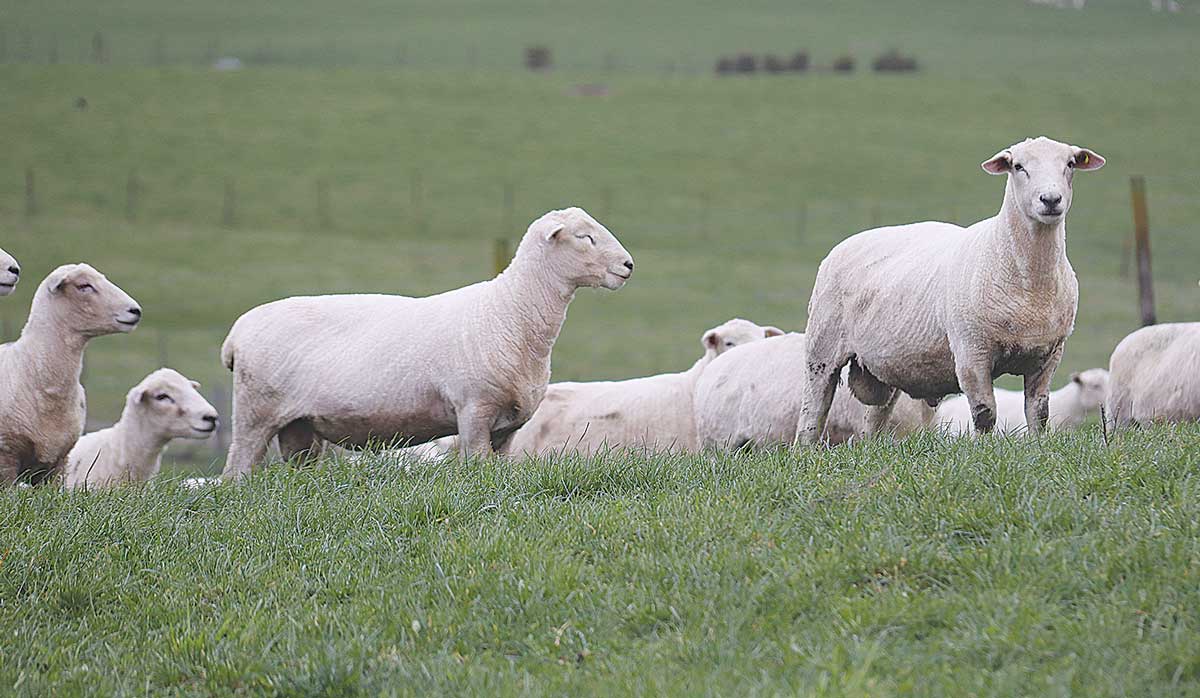State Farmer Delivers Solid Half-Year Result
State farmer Landcorp, trading as Pamu, is a forecasting a full-year net profit of around $100 million.
Breeding better and more efficient sheep is the major focus of a Pāmu (formerly Landcorp) farm in the Central North Island.
Goudies Station near Reporoa runs a nationally recognised elite flock of Romney rams which have highly desirable traits, with new ones being developed - including lower methane emissions.
The farm is unusual in that it's a long, skinny 1779ha property that runs for 18km, providing a natural firebreak between a large Timberlands forest.
Tim Bowron and six permanent staff run the property which also includes 1400 hinds and a specialist dairy beef breeding unit which runs 350 cows.
The soils are light pumice, but regular rainfall and early morning dew ensure quality pasture covers.
The sheep stud, says Bowron has been running for 14 years on Goudies, but the stud has at least 50-years-worth of breeding behind it now. It's particularly renowned for its facial eczema (FE) resistant flock.
"That's why a lot of clients come to us to buy rams," he says.
But it's not just FE that Bowron and his team at Goudies are working on. They also have a focus on animal constitution - in layman's terms, breeding a strong ewe able to lamb for five or more years. At Goudies they have been ruthless about structure, and culled 30% of their ewe flock seven years ago. They have maintained the same selection pressure over the past seven years for stock that don't meet their strict criteria.
There is also a programme on ewe fertility. Ironically, back in the 1980s, a breed called the Finnish Landrace was introduced into New Zealand because our average lambing percentage was low and one of the attributes of the Finnish Landrace was to produce multiple births - in particular triplets. Bowron says ewe fertility has now become a problem for many New Zealand farmers.
"We have flocks in the country that are scanning at 235% and some flocks where more than half the ewes are producing triplets, and that's not what farmers or finishers want. This is because the mortality rates are too high, and the lambs take too long to finish," he says.
Bowron says getting the right NLB or number of lambs born to each ewe is important and he says the commercial world is very happy with a ewe that has about 165%. Incidentally, the lambing percentage at Goudies sits at around 160%.
Tackling Emissions
At just about every agri-related conference these days, the issue of methane emissions is raised.
A wide range of research is being done internationally and in New Zealand and Pāmu is part of that. They have a programme to see if individua sheep produce less methane than others.
To find this out, the sheep are fed a special diet and then put in a special portable chamber which can measure their methane emissions.
Tim Bowron says such a trait is highly heritable and somewhat random, so they set aside sheep that have this trait.
"This doesn't mean to say that we outrightly reject animals without this trait because often they have other highly desirable ones that we value," he says.
 |
|---|
|
The Pamu-owned station runs a nationally recognised elite flock of Romney rams. |
On Goudies, many of the ewe lambs are kept as replacements or sent to other Pāmu farms and any culls are sent to the works. The rams with highly desirable traits are sold by private treaty on the farm.
But like all farmers in New Zealand, times at Goudies are tougher than they were a few years ago. Bowron says demand for rams has declined with low wool prices and some movement to self-shedding sheep.
Forestry and other land use changes are also a factor and, as they have seen for the last couple of years, prices that sheep farmers are getting for their stock have dropped significantly and are unlikely to return to the levels of past years.
All of this points to the need for the sheep sector to continue to do what it has always done - being at the forefront of innovation and good science, the likes of whih are taking place at Goudies Station.
Dairy Women's Network (DWN) has announced that Taranaki dairy farmer Nicola Bryant will join its Trust Board as an Associate Trustee.
Rural Women New Zealand (RWNZ) says it welcomes the release of a new report into pay equity.
Red meat exports to key quota markets enjoyed $1.4 billion in tariff savings in the 2024-25 financial year.
Remediation NZ (RNZ) has been fined more than $71,000 for discharging offensive odours described by neighbours as smelling like ‘faecal and pig effluent’ from its compositing site near Uruti in North Taranaki.
Two kiwifruit orchards in the Bay of Plenty and one in Northland are this year's finalists for the Ahuwhenua Trophy competition.
The Government's chief science advisor, Dr John Roche says the key objective for the science sector in the coming year is bedding down the reforms which sees the merger of the previous entities.

OPINION: A mate of yours truly reckons rural Manawatu families are the latest to suffer under what he calls the…
OPINION: If old Winston Peters thinks building trade relations with new nations, such as India, isn't a necessary investment in…